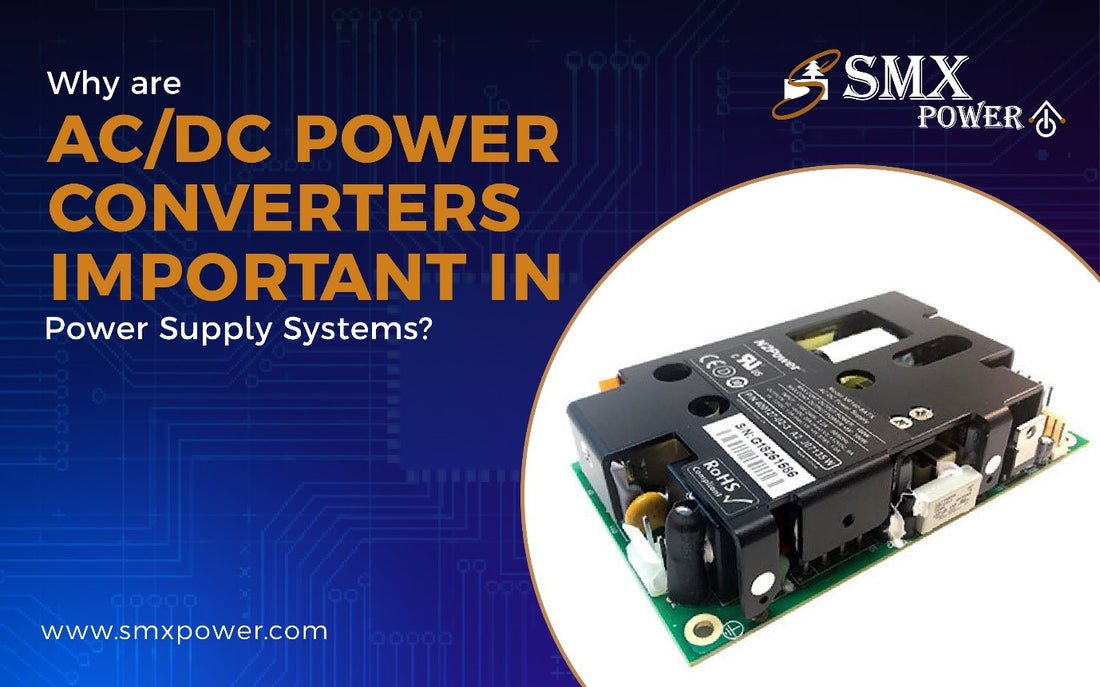The modern, tech-savvy world depends on electric energy that flows in different forms- Alternating and Direct Currents. Most appliances in households need AC electricity for their operation. However, some electronic gadgets depend on DC power. That is why having an AC/DC converter is essential for your power supply systems. It is also used in measurement equipment, consumer devices, and industry-standard process control systems. For instance, power devices in your smart home have advanced hardware components for AC/DC conversion to reduce energy losses. Let us talk about the advantages of buying AC/DC power converters.
Know about AC and DC currents
Before understanding the significance of power converters, you should learn about AC and DC currents. AC is a type of electric energy where voltage and electric current oscillate in a non-sinusoidal or sinusoidal waveform. It differs from DC, where the flow of electrical energy is in one direction. AC voltages can easily be transformed as they are highly flexible for long-distance transmission.
Why do power supply systems need AC/DC converters?
Power converters are useful for power supply systems in various ways.
1. Regulate voltage
AC/DC converters ensure control over voltage. They convert high-voltage Alternating Current to low-voltage Direct Current for electronic devices. The converter allows the devices to work efficiently and safely. So, there is no risk of damage caused by high voltage levels.
2. High portability for miniaturization
Technological advancements in power supply converters have resulted in more portable models. Miniaturization is a trend for most innovative electronic gadgets that need lightweight and compact power solutions.
3. Compatibility with electronic devices
DC power is essential to several electronic gadgets. On the other hand, the electrical grid supplies AC power. AC/DC converters allow these modern devices to receive the appropriate type of power they require to function properly.
4. Reduce noise
Premium-quality AC/DC conversion devices minimize electrical noise. Sometimes, the noise issues affect the electronic circuit’s performance. It is highly important, especially in communication systems and other sensitive applications.
5. Facilitate battery charging
Some electronic systems (like renewable energy devices and uninterruptible power-supplying systems) need batteries for their operations. So, AC/DC converters play a significant role in charging the battery with the Alternating Current conversion into Direct Current.
6. Ensure high energy efficiency
If you have an AC/DC converter, there is no need for multiple converters and inverters. The reduced power conversion prevents potential equipment failure. For instance, the power supply converter in an EV integration provides a storage connection and faster charging. So, it will reduce reversal steps and wasteful power conversion.
7. Improve safety
AC/DC converters have unique isolation features that separate the output and the input. These features protect electronic gadgets from sudden faults and keep users safe. The isolation ability also maintains system integrity and prevents electrical shocks.
Choosing the appropriate AC/DC converters
You have to focus on various factors when choosing your power supply conversion systems. Modern smart gadgets are compact and easily installable, so companies manufacturing power converters keep up with this trend. Some reliable manufacturers also ensure higher efficiency when designing power converters. As AC/DC converters are highly efficient, they reduce energy loss. These converters have minimal standby power usage. Many IoT devices operate in standby mode (like door lock systems and electric curtains). They need an efficient power converter to supply power.

